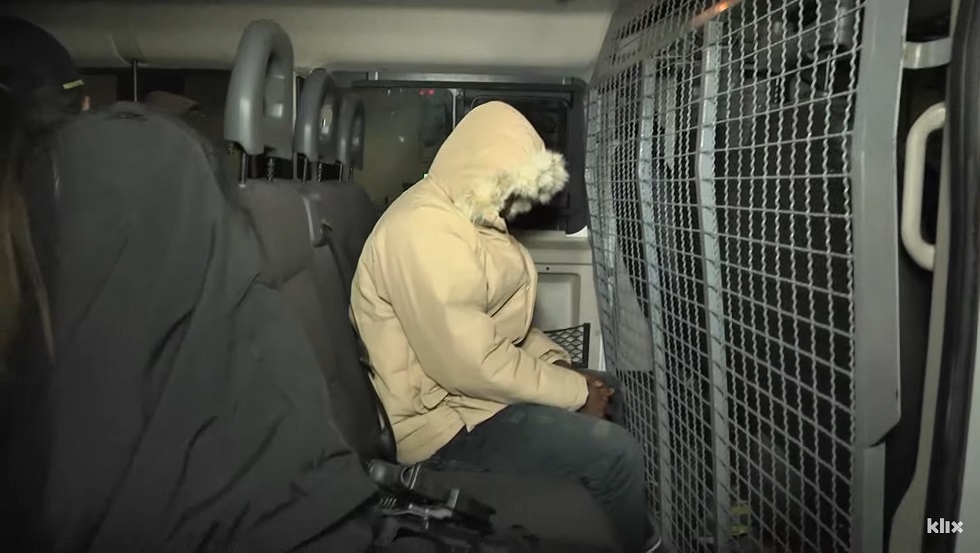Croatian Police to Have Higher Wages in 2020
ZAGREB, December 18, 2019 - The government on Wednesday decided to greenlight a rise in monthly pay of Croatian police officers according to the model of 3% rise plus 1% and an additional 2% throughout 2020.
Thus, the wage earned this December and paid in January to police officers with secondary school education will increase by 3%, plus 1% for the wage earned in June 2020 and paid a month later, and in January 2021 they could except the monthly wage increased by 2%.
Thus, the monthly wage of police staff who are employed in the positions for which completion of secondary school education is required will rise by 6.11% in aggregate in January 2021.
Other police officers can count on a 3-percent rise their monthly wage as of September 2020.
Interior Minister Davor Božinović said that this agreement "is the continuity of the performance of this government" and its wish to ensure higher wages to police officers in accordance with the financial possibilities. alongside the provision of better work conditions and equipment.
The agreement on the new model for rising police officers' pay will be signed later on Wednesday by the government and representatives of trade unions of police staff.
More police news can be found in the Politics section.
Nigerian Government Official: Students Will Return Home from Croatia
Contrary to recent reports that the Bosnian government would be sending two Nigerian students, Abia Uchenna Alexandro and Eboh Kenneth Chinedu, back to their homeland directly from Bosnia, a senior Nigerian government official has confirmed in a press release today that the students will fly back to Nigeria from Zagreb, Croatia instead.
Accusations Against Croatian Police
According to the students’ uncorroborated account, they were approached by Croatian police in Zagreb on the evening of November 17, not allowed to return to their hostel to retrieve their passports and were taken instead to the nearby police station. From there, they were put inro a van with illegal migrants and sent to the Bosnian border where they were forced at gunpoint to enter Bosnia. The Croatian police and manager of the HI Youth Hostel, where the students stayed, have disputed the students’ version of events.
Fear of Returning to Croatia
According to N1 Bosnia on December 11, 2019 – Dragan Mektić, Bosnian Minister of Security explained that the students would be returned to Nigeria directly from Bosnia via the AVR voluntary repatriation program. He noted that the students had expressed fear of returning to Croatia. The students also insisted, in interviews with Žurnal and The Guardian, that they would not return to Croatia without UN escorts. However, a top Nigerian government official has confirmed today that the students will, in fact, be returning to Nigeria from Croatia.
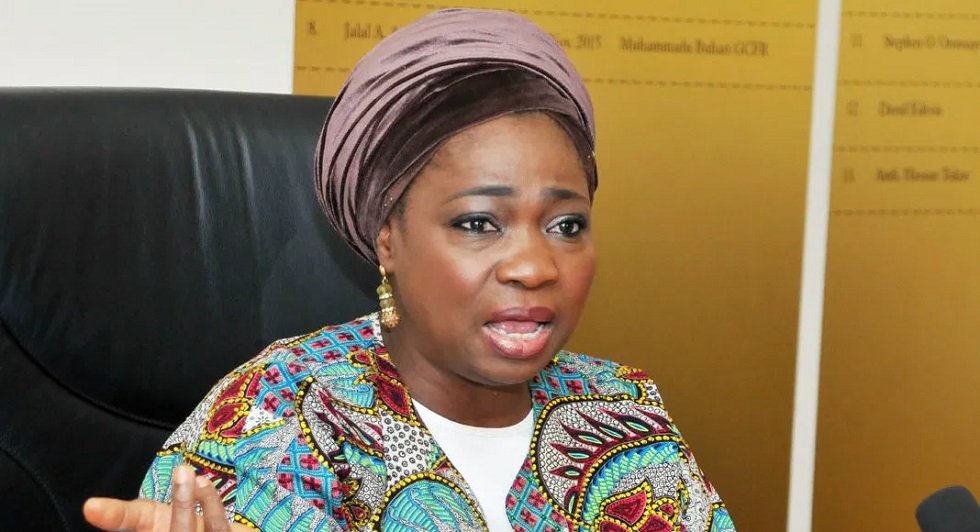
Chairman/CEO of Nigerians in Diaspora Commission Statement
The statement, which was released two hours ago by Abdur-Rahman Balogun, Head Media & Public/Relations, on behalf of the Hon. Abike Dabiri-Erewa, Chairman/CEO of Nigerians in Diaspora Commission (NIDCOM), addressed a few of the details surrounding the students’ trip to Croatia. She noted that the Nigerian Mission in Hungary has been involved in securing their return to Nigeria. Recall that the Chairman had disputed portions of the students' account as reported by The Guardian after that article appeared in The Cable, a Nigerian portal.
“The Minister of Foreign Affairs is on this matter. It’s not as straightforward as you have reported, but the Minister has personally intervened. We should give an update as the intervention continues,” she revealed in a tweet on Saturday, December 7.
Didn’t Inform Nigerian Table Tennis Federation
According to today's statement, five students went to the Fifth World InterUniversities Championships in Pula to compete in table tennis. She also pointed out that they attended the event without the knowledge of the Nigerian Table Tennis Federation. She confirmed Croatian police reports that two had returned to Nigeria after the competition and that another student had applied for asylum in Croatia.
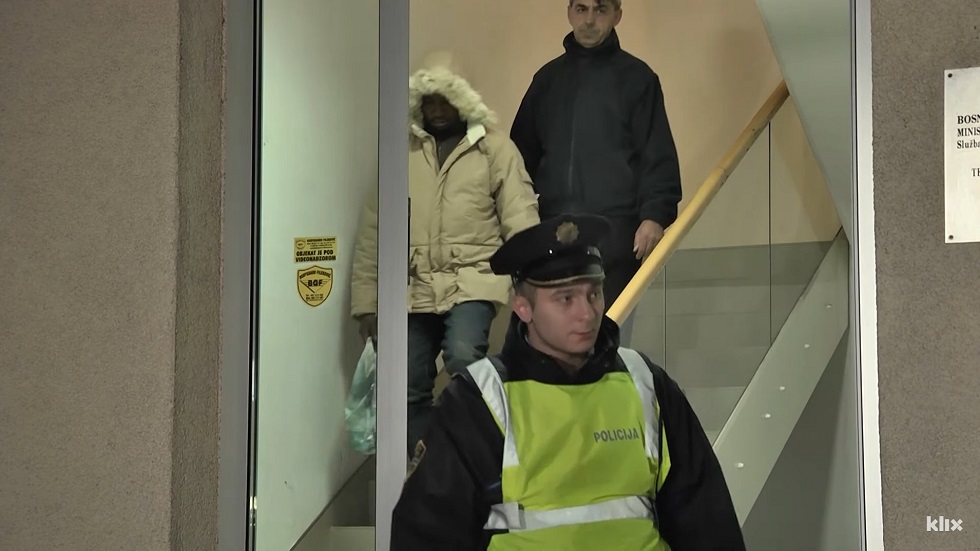
Must use Return Tickets Not Seek Asylum
She emphasized that, as condition of their release, the two students, who are currently being held in Bosnia, must use their return flight tickets from Zagreb and cannot seek asylum in Croatia. While she acknowledged that the Croatian police had denied the students’ allegations, she also noted that Mr. Geoffrey Onyeama, the Hon. Minister of Foreign Affairs of Nigeria, has demanded a full investigation into the incident. She noted that the students are expected to arrive in Croatia anytime from today December 13, 2019.
The statement, which is printed in full below, can be found here.
The Chairman/CEO, Nigerians in Diaspora Commission, (NIDCOM) Hon. Abike Dabiri-Erewa has assured that the two Nigerians in Bosnia Camps are hale and hearty and are expected to return to Croatia anytime from today Friday Dec. 13, 2019 preparatory to come back to Nigeria.
This was sequel to series of diplomatic interventions from the Nigerian Mission in Hungary and Mr. Geoffrey Onyema, Hon. Minister of Foreign Affairs, who directed for full investigations to be carried out.
It will be recalled that two students of the Federal University of Technology, Owerri (FUTO), Abia Alexandro Uchenna and Eboh Kenneth Chinedu, who attended an international table tennis competition in Croatia, ended up in a Bosnian refugee camp.
She said arrangements have been concluded to send the two Nigerians back to Croatia anytime from today, Friday December 13, 2019, adding that the Nigerian Mission in Hungary has taken steps to ensure that the matter is resolved, and the welfare of the two Nigerians protected.
She said that five of them went for the table tennis event without the knowledge of the Nigerian Table Tennis Federation, two returned over two weeks ago, three of them stayed back while one already applied for asylum.
Although the Croatia Authorities through our Ambassador in Budapest denied the allegation involving maltreatment by the Croatian Police, the Hon. Minister of Foreign Affairs, Mr. Geoffrey Onyeama has demanded full investigation into the matter.
She said the conditions attached to their release include usage of their return tickets from Zagreb, Croatia back to Nigeria and must not seek Asylum in Croatia, just as one of them did already.
Dabiri-Erewa appealed to Nigerians to always inform relevant authorities whenever they go on such trips outside the country and be of good behaviour.
According to a report, Abia Alexandro Uchenna, Eboh Kenneth Chinedu, and three other students, arrived in Zagreb, capital of Croatia, on November 12, for the fifth world inter-university championships held in the country.
They were allegedly arrested while taking a walk around the country’s capital on November 18 as they couldn’t produce relevant documents to the police.
The police officers were reported to have transferred the students to the country’s Bosnia-Herzegovina border, where Croatian authorities had gathered a group of illegal migrants attempting to cross into the country.
Signed,
Abdur-Rahman Balogun
Head Media & Public/Relations
Follow our Politics page for updates regarding this story and the migrant crisis in Croatia.
Bosnia Returning Nigerian Students to Their Homeland
Two Nigerian students, Abia Uchenna Alexandro and Eboh Kenneth Chinedu, accused the Croatian police of chasing them into Bosnia. And now the country's authorities will be returning them to their homeland. As Bosnian Minister of Security Dragan Mektić explained to N1 Bosnia, the two students will be returned to Nigeria because that is what they want.
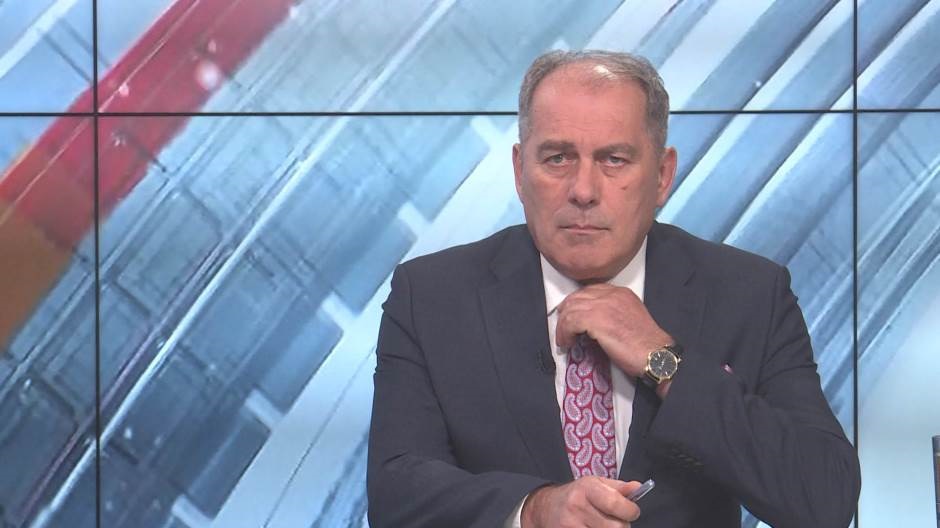
Bosnia Official Claims Students Afraid of Returning to Croatia
"They have agreed to enter the so-called AVR voluntary repatriation program. With their consent, we can return them to their country of origin without subjecting them to additional procedures, readmissions, etc.," Mektić noted.
The minister also explained that the possibility of readmission (i.e. return to the country where the immigrants were staying before entering Bosnia) was not considered.
"They expressed a great fear of returning to Croatia and worried that they would be further harassed there. They were simply afraid for their own lives," Mektić claimed. He added that the two Nigerian students chose not to seek asylum in Bosnia.
Croatian Police and Hostel Manager Deny Students’ Account
Recall that the Nigerian students, who came to Croatia without rackets to play table tennis for a sports competition in Pula, claimed that the Croatian police abducted them in Zagreb on November 17 or 18. According to their uncorroborated account, the Croatian police transferred them to the green border of Bosnia and then expelled them there under threat of violence.
However, the police claim that the Nigerian students “officially checked out of the HI Youth Hostel on November 18, paid their expenses, took their travel documents and possessions, and left for an unknown destination."
The police also noted that another student (in the group of five) tried to enter Slovenia twice and applied for asylum in Croatia on November 27.
The hostel manager confirmed the police account and disputed the students’ claimed check-in and check-out dates. He also disputed the students’ claims that an unidentified “friend” retrieved the students’ passports from the hostel after their alleged disappearance.
Abike Dabiri-Erewa, Chairperson of Nigerians In Diaspora Commission (NIDCOM), also responded to the students’ claims on Saturday, after their story, which originally appeared in Žurnal, was picked up by The Guardian and then The Cable in Nigeria.
“It’s not as straightforward as you have reported, but the Minister (of Foreign Affairs) has personally intervened,” she wrote.
Follow our Politics page for updates on the migrant crisis in Croatia.
Nigerian Students in Bosnia: We won't go to Croatia without UN Escorts!
According to yesterday’s interview for a Bosnian portal, the Nigerian students say they want to go home to Nigeria immediately. If the Bosnian authorities intend to transfer them back to Croatia, they will only agree to go if they are accompanied by United Nations escorts.
Azra Omerović, of the Bosnian portal Žurnal, caught up with the students in East Sarajevo on December 10, 2019.
Original Žurnal Story Went Viral
On December 3, Žurnal published the story of two Nigerian students, Abia Uchenna Alexandro and Eboh Kenneth Chinedu, who allege that Croatian police illegally transferred them to Bosnia and Herzegovina. That story was picked up by several international publications including The Guardian and The Cable, a Nigerian portal. In the meantime, the students were transferred from Velika Kladuša to the Immigration Center in East Sarajevo, after being detained for questioning in Bihać.
The Croatian Ministry of Interior has dismissed allegations by the Nigerian students that they had been illegally transferred to Bosnia by the Croatian police.
Youth Hostel Manager Denies Students’ Account
Branimir Markač, the manager of HI Youth Hostel, the Zagreb hostel where the students stayed, has also disputed the students’ arrival and departure dates. He also denies that the students disappeared on the evening of November 17. He dismisses the students’ claims that an unidentified “friend” later came to pick up their passports, which they claim remained at his hostel after the students were allegedly “kidnapped” by Croatian police. The fact that the students could not remember the name of their hostel further muddies the narrative. There is unconfirmed speculation that the unidentified “friend” might be the other student in their group, who tried to enter Slovenia twice, applied for asylum in Croatia and is currently being housed in Zagreb.
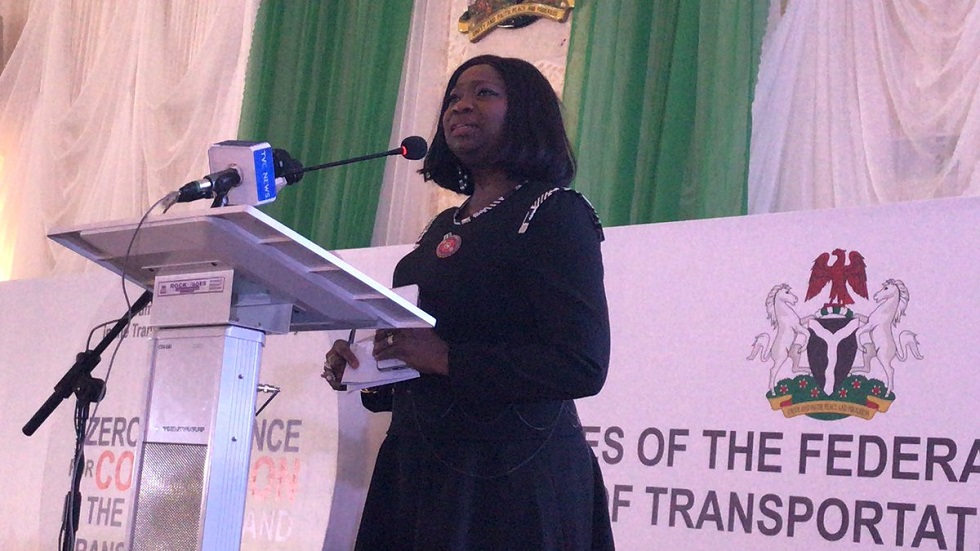
Nigerian Minister of Foreign Affairs Intervened
Abike Dabiri-Erewa, Chairperson of Nigerians In Diaspora Commission (NIDCOM), responded to the students’ claims on Saturday, after their account was picked up by The Cable in Nigeria.
“The Minister of Foreign Affairs is on this matter. It’s not as straightforward as you have reported, but the Minister has personally intervened. We should give an update as the intervention continues,” she wrote.
In their most recent interview with Žurnal, students say they cannot believe what is happening to them and have responded to allegations by the Croatian media and police.
We are Telling the Truth!
“We are scared, we were telling the truth about what the Croatian police did to us. They have accused us of lying because we want asylum in Croatia. We were legal in Croatia, and if we had wanted to seek asylum, we could have applied for it because we had visas,” Kenneth Chinedu insists.
The two Nigerian students are currently being housed in East Sarajevo, at the Center for Foreign Affairs of Bosnia. They say that they have been in custody the entire time.
Currently in Custody in East Sarajevo
“The police questioned us. We told them what happened, and we've been in custody here ever since. We are not allowed to go outside and we're not doing well at all. We need help, have someone help us. Send us home immediately or allow us to be escorted back to Croatia with UN representatives. We will not go to Croatia without UN representatives, maintains Alexandro.
Students Demand UN Escorts for Croatia
“If they want to send us to Croatia, we must be accompanied by the UN. They (the Croatian police) denied everything we said they did to us. We need someone to accompany us every moment and to keep track of what's happening. We are terrified of returning to Croatia after everything that they have done to us. We told the truth and stand by our story!” Alexandro reiterates.
Nigerian Official: There is ‘Back Story’
The Nigerian students are asking the Bosnian authorities to resolve their situation as quickly as possible because they did not enter Bosnia and Herzegovina illegally. However, the details of their transfer to Bosnia remain in dispute, and top Nigerian government official Abike Dabiri-Erewa confirmed that there is a “back story”.
“But whatever the circumstances, the most important thing is to get them back,” she emphasized in Saturday’s tweet.
Follow our Politics page to keep updated on this story and the migrant crisis in Croatia.
Croatia Police Incident Not as The Guardian Reported - Nigerian Ministry
Abike Dabiri-Erewa, Chairman/CEO of the Nigerian Diaspora Commission for the government of Nigeria, responded to the allegations of two Nigerian students who came to Croatia to play table tennis and mysteriously ended up in Bosnia, after The Guardian article appeared on a local Nigerian portal.
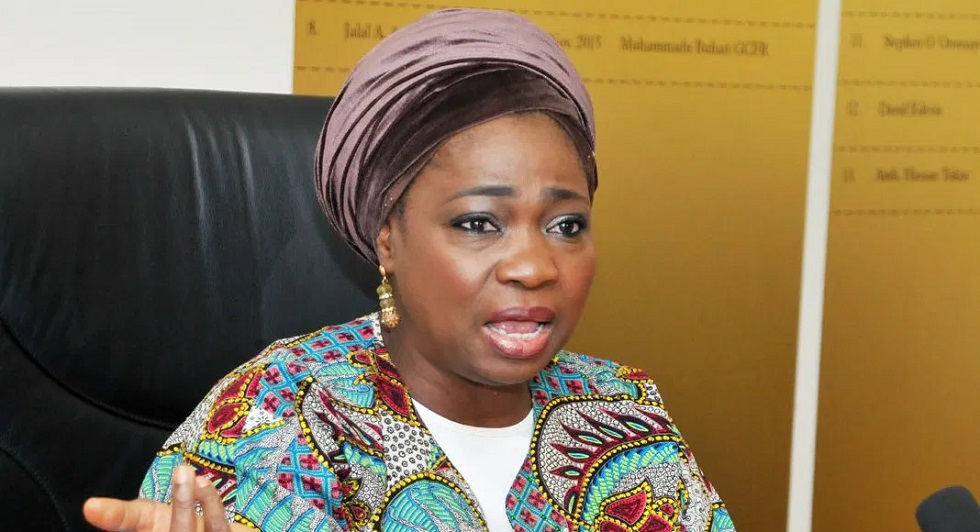
Nigerian Minister of Foreign Affairs Intervened
“The Minister of Foreign Affairs is on this matter. It’s not as straightforward as you have reported, but the Mimster (sic) has personally intervened. We should give an update as the intervention continues,” she revealed in a tweet on Saturday, December 7.
The Guardian article titled “Police in Croatia deport Nigerian table tennis players to Bosnia” appeared on December 5. Since then the story has been picked up by DW, The Telegraph and others. And, then it appeared in TheCable, a Nigerian portal.
Croatian Police 'Kidnapped' Nigerians According to Žurnal
Žurnal, a portal based in Bosnia, broke this story on December 3 with the headline: “Croatian Police Kidnapped Nigerian Students and Took Them into Bosnia”. The Žurnal article also included a video interview with the students, Kenneth Chinedu Eboh and Uchenna Alexandro Abia, who alleged that Croatian Police apprehended them on a tram in downtown Zagreb. According to the students’ account they were brought to the police station on the evening of November 17, put into a van with other illegal migrants and forced at gunpoint by the Croatian police to cross the Bosnian border.
Žurnal Story Gets Picked Up by The Guardian
Writing from Tuzla, Bosnia - Lorenzo Tondo, a correspondent for The Guardian based in Palermo, Italy - referenced the students’ Žurnal interview in his December 5 article for the publication. He also interviewed Alberto Tanghetti, organizer for the Fifth World InterUniversities Championships in Pula, where the students had showed up without rackets and sports equipment, and competed in table tennis. Mr. Tanghetti confirmed that the young men had attended the competition and that he had identified them for volunteers at the camp in Velika Kladuša, where the men ended up.
However, Mr. Tondo’s December 5 article didn’t include the statement from the Croatian police which had appeared in Croatian media mid-day on December 4. Among other things, their statement disputed the students’ reported Zagreb travel dates and noted that another student in the group of five, had tried twice to cross the border to Slovenia and eventually applied for asylum in Croatia.
First Guardian Article Missing Police Statement
I contacted Mr. Tondo on the evening of December 5 to ask why he hadn’t included the police statement, which had appeared the day before and contradicted key details in the students’ allegations. I also pointed out that several Croatian media outlets had just interviewed the manager of HI Youth Hostel (also on December 5), where the students stayed. I added that the HI Youth Hostel is only 230m from the central police station on the same street, which calls into question why the police wouldn't have accompanied the students back to their hostel to verify their passports. According to the students’ allegations; the Croatian police brought them to the nearby police station instead.
Branimir Markač, the hostel manager, also disputed the students’ claimed check-in and check-out dates. The students stated that they checked in to the hostel on November 17, went for a walk in the city and were apprehended by police, who refused to allow the students to prove their identities and legal visas in Croatia, and took them in a van to Bosnia instead. The manager confirmed the Croatian police account that the students had checked in on November 16, rather than November 17, and checked out with their passports and belongings on November 18.
Mr. Markač also disputed the students’ account that an unidentified “friend” came to his hostel (the name of which the students couldn’t remember), retrieved their passports, and sent them to Bosnia, where local sources confirmed their arrival on November 25. The manager confirmed that no one came to his hostel in search of the Nigerians’ passports. He also emphasized that he would not have handed them over to a stranger.
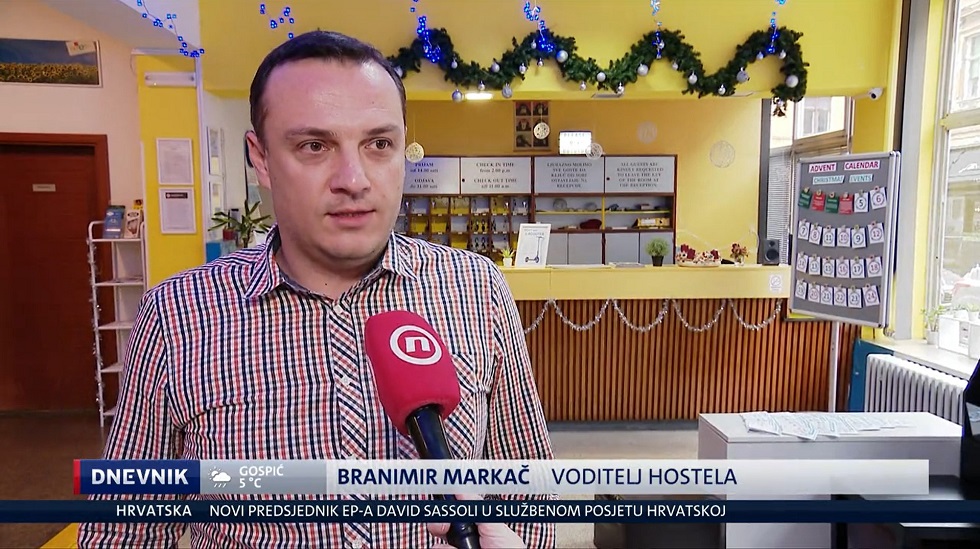
Second Guardian Article Missing Hostel Managers’ Account
Mr. Tondo maintains that he didn’t obtain a police statement until 6 hours after his first article was published. In fact, he would have had that information the day before if he had been following Croatian media. He also didn’t include the hostel managers' account in his second article, written in Split, and titled “Croatia and Bosnia play political ping-pong over table tennis players”. That article, which appeared in The Guardian on December 6, quotes the Croatian police statement and refers the other Nigerian who attempted to cross the Slovenian border. However, it makes no reference to the hostel manager, even though I had provided him with this information and sources on the evening of December 5.
My correspondence with Mr. Tondo continued December 6, when I asked him the following:
- Did you read articles from any of the Croatian media outlets beforehand?
- Do you follow Croatian media?
- Do you read/speak Croatian/Serbian/Bosnian?
- Do you have an understanding of politics in Croatia?
- Did you contact anyone in Zagreb (besides the Croatian police) where this alleged incident happened?
Mr. Tondo declined to reply and responded that he was going to send my email to his lawyer. To my request for his editor’s name and contact information, he responded that he had already forwarded my emails to his editor and I could seek out that information by myself.
Does Lorenzo Tondo Know Croatian?
Upon contacting The Guardian by phone on December 6, I obtained the contact information for Tracy McVeigh, Editor of The Guardian’s Global Development Desk. I included my correspondence with Mr. Tondo and asked if The Guardian has a dedicated correspondent in Croatia who can follow news in Croatian/Serbian/Bosnian. I also indicated that Mr. Tondo would have a difficult time following the news developments in Croatia if he can’t read or speak the language. And, surely, there is a considerable pool of capable journalists living in Zagreb.
The Guardian Cannot Afford Croatia-based Correspondent
Ms. McVeigh declined to confirm whether Mr. Tondo knows Croatian/Serbian/Bosnian, and indicated that The Guardian, an international publication with over 8 million Facebook followers, cannot afford to keep a permanent correspondent in Croatia. Instead, she assured me that The Guardian has highly-skilled and experienced correspondents who travel to many different countries to write for their “British audience”.
According to the Croatian portal MojaPlaća (My Salary), the average monthly full-time salary for a journalist in Croatia, after taxes, is 4792 HRK (541 GBP, 644 EUR). So, it appears that The Guardian chose instead to assign this story to Mr. Tondo, a correspondent based in Palermo, Italy - who has not indicated whether he knows the local language. And he also appears to have accepted the Nigerian students’ story, reported by Žurnal, as fact.
No Witnesses to Students’ Alleged Zagreb ‘Kidnapping’
Other than contacting the Croatian police for a statement, which was already available to the public on December 4, there’s no evidence that Mr. Tondo made any other attempts to confirm the details of the students’ story. He apparently did not contact the manager of HI Youth Hostel, nor is there any evidence that he was following Croatian media as this story developed. There’s also no evidence that he made any attempts to reach out to the other Nigerian student in the group, who applied for asylum status in Croatia, and is currently being housed at the center for asylum seekers in Zagreb.
“I always knew there’d be a back story to this!” read one response to Abike Dabiri-Erewa’s tweet on Saturday.
“There is. But whatever the circumstances, the most important thing is to get them back,” the senior Nigerian government official replied.
Follow our Politics page for updates on this developing story and the migrant crisis in Croatia.
Croatia Police Allegations: Zagreb Hostel Disputes Nigerian Students' Story
Did the Croatia police (MUP) really abduct two Nigerian students who were legally at a sports competition in Croatia, on a tram just steps away from their hostel in the middle of Zagreb, and banish them to Bosnia?
Kenneth Chinedu Eboh and Uchenna Alexandro Abia, two Nigerian students who came to Pula to compete in table tennis, claim that that is exactly what happened, while MUP claims in a statement that they had checked out of their hostel, the name of which has now been revealed. They allegedly departed the HI Youth Hostel in Zagreb with their passports on November 18 and arrived in Bosnia illegally. However, MUP claims that they still do not know how the students got to Bosnia.
Over the past two days, this alleged expulsion has captured the media attention of Croatia and neighboring states. And, the story has now reached the rest of Europe after it was published in The Guardian yesterday.
Croatia Police and Nigerian Students Not Telling Whole Story
Based upon what is known so far, neither MUP nor the Nigerian students are telling the whole story, according to Gordan Duhaček/Index on December 5, 2019.
It has been confirmed that Nigerian students have obtained a visa for Croatia at the embassy in Pretoria and that they entered the country legally. They stayed at the Veli Joze Hotel in Pula while competing in table tennis at the 5th World InterUniversities Championships. However, their version of events regarding their alleged detention and forcible expulsion from Zagreb to Bosnia have not yet been corroborated.
The Nigerian students ended up in a migrant camp in Velika Kladuša in Bosnia, but were they really expelled by the Croatian police under the threat of violence? That cannot be confirmed, because the claim is based solely on the testimony of two students and has not been substantiated with evidence. And did the Croatian police really abduct them on a Zagreb tram, in front of other riders, in the middle of the city? That allegation has not been confirmed either, but MUP could easily inspect surveillance cameras on Zagreb trams and inform the public of their findings.
Nigerian Students' Story Conflicts with MUP and Hostel Account
The most suspicious part of Eboh and Abijah’s story is that they do not remember the name of their hostel in Zagreb. Then, as they claim, a friend from Croatia sent them their passports, which he collected at the hostel reception desk. Those passports arrived by mail in Velika Kladuša on November 25, which has been confirmed by independent sources from the field. How did that friend know which hostel to go to if they couldn’t tell him the name? Did he stay with them in the same hostel? And what is the name of the friend who sent them their passports?
According to Vecernji List and other sources, the students stayed at the HI Youth Hostel on Petrinjska Ulica 77. That hostel is a mere 230m, or a 3-minute walk, from the MUP central office on the same street at Petrinjska Ulica 30, which casts doubt on the students' claim that the Croatian police wouldn't be bothered with confirming their travel documents at the HI Youth Hostel. According to their allegations, they were taken instead to the MUP central station 230m away.
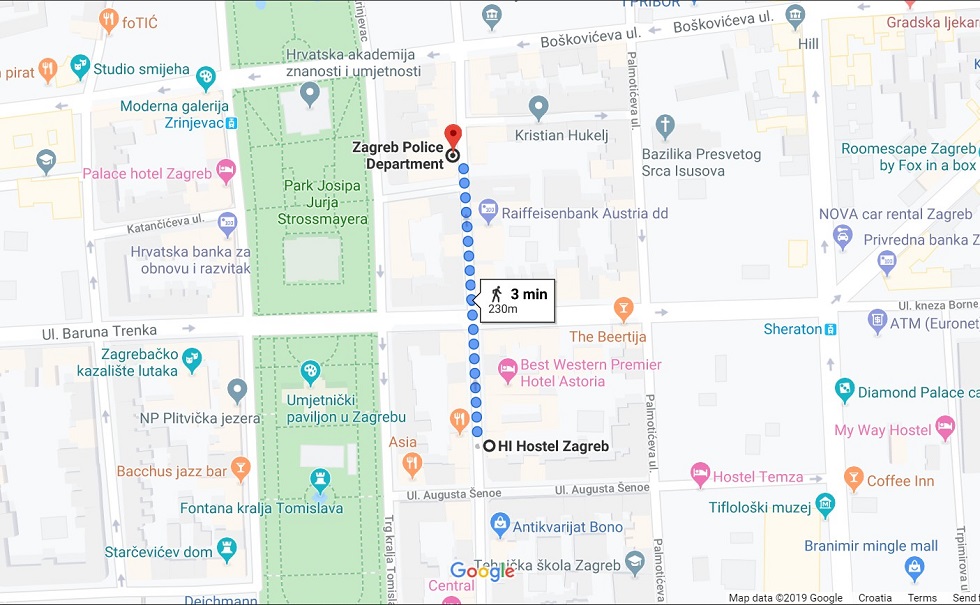
Students Took Their Passports and Luggage Upon Check-out
Hostel manager Branimir Markač confirmed in an interview with Dnevnik Nove TV that the students spent two nights at his hostel in Downtown Zagreb, checking in on November 16 (rather than November 17 as the students claim) and noted that they spent some of their time in the hostel lobby. They asked the front desk for some information; like the location of the nearest exchange office. After spending their first night and day at the hostel and taking side trips around town; the two Nigerians decided to extend their stay another night, which they did at 22:23h on November 17. Markač says he has their bill as evidence. They checked out of the hostel on November 18 at 11:00h and didn’t leave anything behind. This conflicts with the students’ claim that they were abducted by Croatian police on the evening of November 17, and sent to Bosnia, with their travel documents and luggage remaining at the hostel.
"Absolutely no one came to the hostel for their travel documents, nor would we ever hand over anybody else's belongings," Markač emphasized.
MUP has also claimed that Eboh and Abia left the hostel for an unknown destination, after checking out, taking their passports and paying their bills.
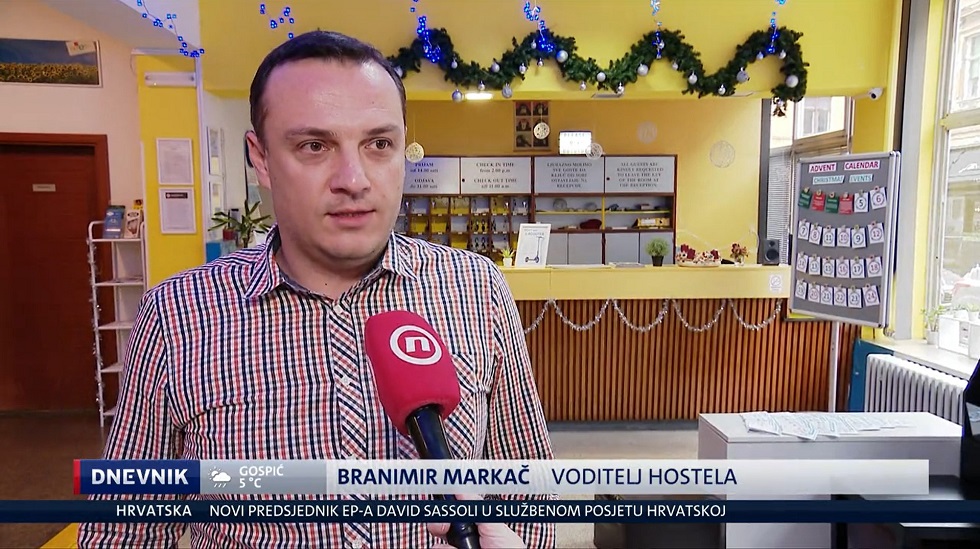
Who sent their passports to Velika Kladuša?
Is the friend who sent the Nigerian students their passports by mail (allegedly after retrieving them from the HI Youth hostel) their colleague from Nigeria? He also stayed in Croatia after his six-day visa expired and requested asylum with his passport at the MUP central station (230m from the hostel) on November 27, after reporting his passport lost at the same station on November 18. The police know his name but have not yet published it. He is likely being housed Hotel Porin, a reception center for asylum seekers in Zagreb, but police have been silent regarding his identity and whereabouts.
Were Smugglers involved?
According to Gordan Duhaček/Index; there is only one scenario in which the Croatian police might not be guilty of expelling Eboh and Abijah. Suppose that the Nigerian students went to the sports competition in Pula with the sole intention of staying illegally in the European Union after their six-day visa expired. Like most migrants, they don’t want to stay in Croatia, but want to go to one of the larger and more economically successful EU member states, so they paid smugglers, who are undoubtedly working throughout the region, to transfer them to Italy or Slovenia, i.e. to the Schengen free movement zone in the European Union.
Sources have confirmed that the students' arrived at the competions without rackets or sports equipment and lost every match. However, Hajdi Karakaš/Jutarnji List reports that other competitors considered them to be good-natured and pleasant to be around.
Smugglers Often Deceive Migrants
As Duhaček points out, there have been many reports of smugglers deceiving their "clients" and not taking them to the destinations they had promised. In that context, it's possible that the Nigerian students paid smugglers to take them to Slovenia or Italy but were tricked and brought to the Bosnian border. There the smugglers told them to walk through the forest where they would reach Italy or Slovenia.
Of course, Eboh and Abia followed instructions, and only when they came across migrants at Velika Kladuša did they realize that they had been duped and taken to Bosnia instead. There, they heard stories from other migrants about the aggressive pushback policy implemented by the Croatian police. That policy, as reported by The Guardian and other media outlets, involves bring migrants in vans back to the Bosnian border and illegally expelling them there under the threat of violence. With that information, they theoretically constructed the story they have shared Bosnia portal Žurnal and other media outlets.
Apparent Lack of Border Control
But even if that’s what really happened, it remains unclear how it was possible for a smuggler to take the Nigerian students to the Bosnian border, a border monitored 24 hours a day by drones, thermal cameras and thousands of police officers, and remain completely undetected.
In other words, the only scenario in which the Croatian police are not guilty is the same scenario in which the Croatian police are utterly incompetent, according to Duhaček.
Another Scenario Which Implicates Both Parties
Another possible scenario, which would involve wrongdoing by MUP and the Nigerian students, has the Nigerian students leaving their passports somewhere (or with their unidentified friend) after checking out of the HI Youth Hostel and setting off for Slovenia or Italy without travel documents. Croatian police intercept them somewhere outside of Zagreb and take them for illegal migrants, particularly after they were not able to furnish their travel documents. The Croatian police then put them in a van with other illegal migrants and forcibly expel them at the Bosnian border.
According to this second scenario, Eboh and Abia understand that admitting that they had set out for Slovenia or Italy without travel documents would identify them as illegal migrants regardless of the conduct of the Croatian police, perhaps compromising their chances of being granted asylum. Their unidentified friend (perhaps their Nigerian colleague in Zagreb) held on to their travel documents and sent them to Velika Kladuša after learning that things had not gone as planned.
Regardless of circumstance, if Zagreb police randomly pulled two people of color off of a tram, in the middle of Zagreb, and in an area frequented by tourists from all over the world; Croatia has a much more serious problem to contend with.
For updates on this story, the activities of the Croatian police (MUP) and the migrant crisis in Croatia; follow our Politics page here.
Interior Ministry Doesn't Know How Nigerians Ended up in Bosnia
ZAGREB, December 4, 2019 - The Interior Ministry on Tuesday responded to a news item about the illegal deportation of two Nigerian students to Bosnia and Herzegovina, saying Croatian police did not have their legal departure from Croatia on record and that they did not know how they ended up in BiH.
Abia Uchenna Alexandro and Eboh Kenneth Chinedu, both 18, have told Bosnian website Žurnal that Croatian police deported them to BiH, treating them as illegal migrants despite the fact that they arrived in Croatia with valid visas.
The police told Hina that five Nigerian citizens - four students and their supervisor - legally entered Croatia on November 12 and took part in a sporting tournament in Istria County, and that the supervisor and one of the participants in the tournament legally left Croatia via Zagreb's airport, while one applied for asylum in Croatia.
The two Nigerian citizens mentioned in the media checked into a Zagreb hostel on November 16, checking out on the 18th, settling their debts, taking their things and documents, and going in an unknown direction, ministry spokeswoman Marina Mandić said.
The police have no record of their legal departure from the country so they cannot say how they ended up in BiH, she added.
She said the police were checking if this was yet another attempt by foreign citizens to abuse attending a sporting tournament in Croatia.
The fifth Nigerian citizen arrived at a Zagreb police station on November 18, saying he lost his passport, and was given a decision to leave the country, Mandić said. However, she added, he came back to the station on the 27th and said he wanted to apply for asylum, and he is now at the Porin reception centre for asylum seekers.
Mandić said that in the meantime that person tried to enter Slovenia "but was sent back."
The students from Federal University of Technology Owerri arrived in Zagreb from Nigeria to participate in the World InterUniversities Championships in Pula. After competing in the table tennis tournament, they left for Zagreb from where they were to have flown to Lagos via Istanbul on November 18,.
Alexandro and Chinedu are now in Velika Kladuša's Miral camp as illegal migrants. They told Žurnal that police officers had put them in a van, took them to the BiH border where, together with several other persons, probably illegal migrants, they chased them away to BiH.
More news on the migrant crisis can be found in the Politics section.
Minister Says Croatian Police Commended for Protecting EU's External Border
ZAGREB, December 3, 2019 - Croatian police have been commended in the EU for protecting the EU's external border, Minister of the Interior Davor Božinović said on Monday in Brussels, where he was attending a meeting of the Justice and Home Affairs Council.
"EU ministers of the interior know best how to assess the role of the Croatian police, who at the moment are irreplaceable in the EU," Božinović said, adding that he had a lot of meetings with his colleagues.
"There is a consensus on the issue of protection of the external border. Everything that needs to be done with regard to the common asylum policy and legislative changes in that area actually depends on whether we have secure external borders, that is the precondition, and what Croatia and several other countries represent at the moment is the EU's security," Božinović said.
He said that on Tuesday he would meet with the EC Vice-President for Migration, Margaritis Schinas, and Home Affairs Commissioner Ylva Johansson.
Asked to comment on criticism regarding excessive use of force by Croatian police and two cases when migrants were shot at and wounded, Božinović said that nobody had even mentioned it.
"Nobody mentioned the two cases. Right after it happened, we took the necessary activities, the prosecutorial authorities have been involved, and I contacted my colleagues in Europe right away. Everything should be done to prevent incidents but, I repeat, Croatian police act in line with national and European legislation, they are recognised in the EU and we will continue pursuing our policy," said Božinović.
More news about the migrant crisis can be found in the Politics section.
Misdemeanour Fines for Wearing Balaclavas at Sports Events
ZAGREB, November 9, 2019 - Wearing balaclavas to hide one's identity at sport events will in future be treated as a misdemeanour, according to a bill on the prevention of rioting at sports events that the government sent to parliament for consideration on Thursday.
Fines for wearing apparel to hide one's identity have drawn public interest and it is important to note that spectators will not be punished for wearing fan memorabilia like shawls and hats but only for wearing specific items intended to hide one's identity. Balaclavas make it difficult for the police to identify perpetrators and unlawful conduct at sports events, Interior Minister Davor Božinović said, presenting the bill at a cabinet meeting.
The government today also sent parliament a bill on the Centre for Special Custody which regulates the status of the centre as a public institution authorised to represent children and adults in court proceedings and before other institutions.
The establishment of the centre is regulated by the Family Act and the government now proposes that it be regulated by a separate law.
More police news can be found in the Politics section.
Illegal Migrant Shot and Wounded While Resisting Arrest
ZAGREB, November 28, 2019 - An illegal migrant was shot and wounded while resisting a police officer in the wider Mrkopalj area of western Croatia on Wednesday, Primorje-Gorski Kotar County police said in a statement on Thursday.
The man suffered a gunshot wound to the right shoulder and was admitted to the KBC hospital in the northern Adriatic city of Rijeka on Wednesday evening. His condition is stable and his life is not in danger, the hospital said.
The incident occurred after police encountered a group of migrants in the wider Mrkopalj area. One of the migrants resisted arrest and in the process caused a police officer's gun to fire. The man was immediately administered first aid and was taken to hospital, according to the police statement.
More news about the migrant crisis can be found in the Politics section.

